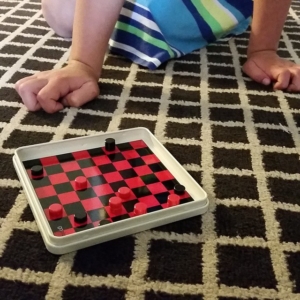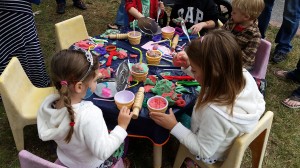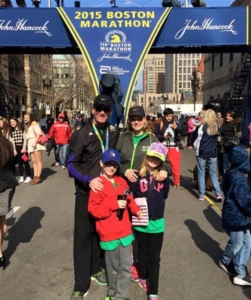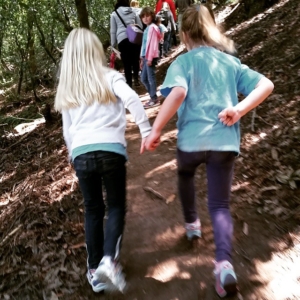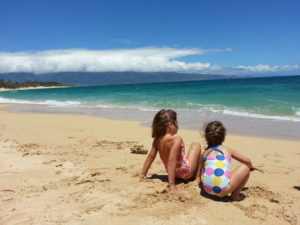Managing siblings on a family road trip
 Summer’s almost upon us, which means it’s time (at least in our family) for road-trips. In families with siblings—again, like ours—long hours in the car often mean yelling, whining, arguing, and fighting for the kids. This, in turn, means headaches, exasperation, and a need for Chardonnay for the grownups.
Summer’s almost upon us, which means it’s time (at least in our family) for road-trips. In families with siblings—again, like ours—long hours in the car often mean yelling, whining, arguing, and fighting for the kids. This, in turn, means headaches, exasperation, and a need for Chardonnay for the grownups.
Thankfully, Dr. Laura Markham has some advice. Markham, a child psychologist, also is author of Peaceful Parent, Happy Siblings: How to Stop the Fighting and Raise Friends for Life (Perigee; May 2015). She has an action plan for parents dealing with bickering kids in the backseat. I caught up with her recently to discuss some of these tips.
MJV: Why is it that road trips seem to bring out tension among siblings?
Laura Markham (LM): You need to recognize that everybody is out of their comfort zone when you’re on the road. Everybody is prone to being a little more irritable. It’s not the regular routine. People are having to accommodate needs of other people in the family more than they have to do normally. If we start from that premise, we have to have more patience. It will be better for everyone.
MJV: What can parents do ahead of time to prepare the kids for how different it will be?
LM: Talk about the trip, for starters. It’s so exciting! Tell them you’ll be stopping along the way. Ask them what sorts of things they’d like to see. Whether it’s a big thing like Niagara Falls or a little thing like a park you find on the map. Have the conversation before you ever get in the car, and talk about what it’s going to be like in the car. That will help prepare them for what’s coming.
MJV: To what extent should parents communicate with the kids about their concerns regarding the trip?
LM: It’s a good idea to ask if anybody is worried about the car trip. One kid may say he’s worried he’ll get carsick. Another might say she’s worried sister will always get to listen to her music, or that she’ll get bored. This process is important because you’re bringing some consciousness to it so the kids can understand this is something from which they can learn.
MJV: How should parents adapt their roles or discipline strategies on the road?
LM: The parent can see him or herself as a facilitator of kids learning the skills to live together and work things out in a civil way and express their needs without hurting another person. You can’t expect kids to be perfect at this, that’s why they practice.
MJV: At the first sign of discord in the backseat, what should you do?
LM: Try to get your kids laughing by saying something ridiculous. Make yourself the object of the humor, so they’re not laughing at each other. This also helps your children work through the universal fear that they themselves might get laughed at.
MJV: What if the kids use hands on each other?
LM: Stop the car. You can’t drive safely when the kids are screaming or hitting and you’re upset. You don’t have to say a word. Just pull the car off at the next exit, pull off safely onto the shoulder, turn off the car, and regain your composure. Then, intervene as calmly as you can to set limits, connect, and defuse the tension.
MJV: Any other tips for parents embarking on road trips with their kids this summer?
LM: Calm yourself. The kids are going to act up; if you stay calm, they’ll calm down more quickly. Also, remember to listen to the right things. If you pay attention to kids’ needs and emotions and respond to those instead of trying to respond with punishment, it will make a huge difference. Let them feel like you’re hearing them. Making them feel like you understand them. That will help them calm down and re-engage in a more productive way. That means a better trip for everyone.



